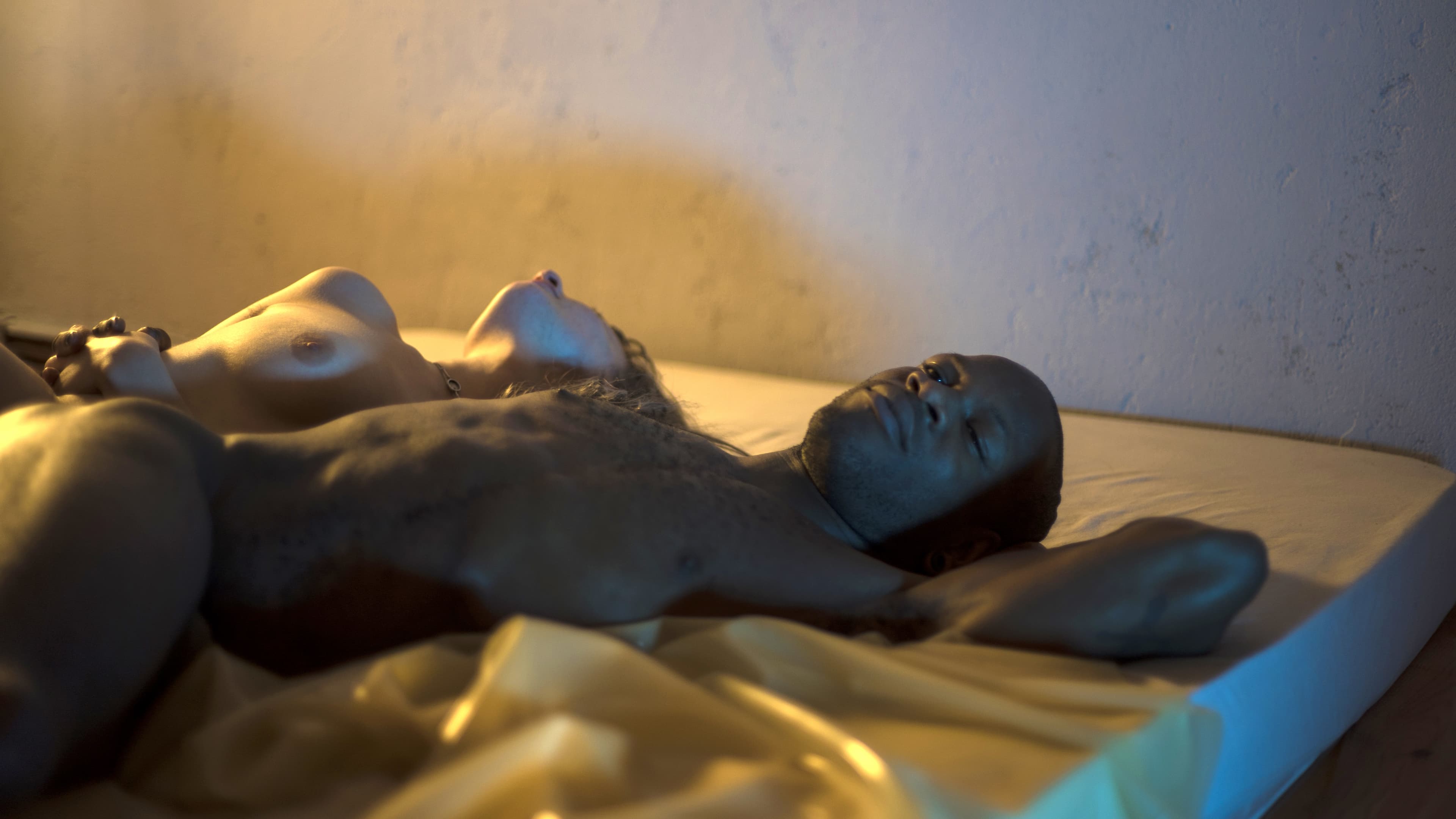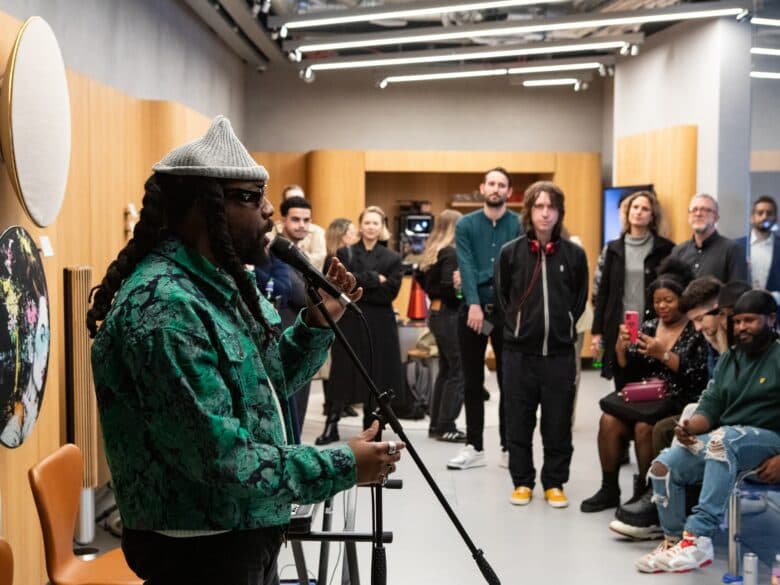This is why porn film festivals are so important
If you’re used to watching porn alone, accompanied by nothing but your iPhone’s judgemental glare, you might be surprised to hear that porn film festivals are regularly celebrated across the world: from Brazil’s PopPorn Festival to London’s Porn Film Fest. However, watching porn en masse is far from a novel idea — it’s actually pretty old school. Back in the days before tube sites, watching erotic film was a communal activity to be enjoyed in porn theatres (if you’ve seen Yann Gonzalez’s Knife+Heart, you’ll get what I mean).
To some degree, porn film festivals can help create a sense of community beyond our current, atomised ways of consuming porn which do little but make us feel isolated in our kinks. One of the longest-running of these is Berlin Porn Film Festival, which first opened its screens in 2006 and by platforming indie, queer and feminist voices has had a hand in shaping the kind of radical good that porn film festivals can create.
From 22 to 27 October, BPFF celebrated its 14th edition, hot off the heels of the PorYes Feminist Porn Awards Europe, which is also held in the German capital. It makes sense that Berlin holds two of the most important events for the porn community — as you’re no doubt aware, you can’t walk through Friedrichshain-Kreuzberg for more than five seconds without bumping into queer kink clubs and vegan, feminist sex shops aplenty. What’s less clear to the uninitiated, particularly if you like your adult entertainment free, accessible and anonymous, is why these events are so important.

BPFF regular Four Chambers is an independent porn producer that creates erotic film through an arthouse lens. In this year’s edition, they showcased four films: Forged Obscenities, an exploration of censorship and obscenity; Archetype, a series subverting traditional porn archetypes; orgy film The Reverence; and Atrophy Portraits II, a visual essay about submission selected for the “Porn as Poetry” screening. In order to hear first hand why festivals like BPFF are so vital to the porn community, HUNGER sought out one of the individuals behind Four Chambers: porn director and performer Vex Ashley.
For Vex, the importance of porn festivals is in the way that they platform and uplift creatives whose work and labour are undervalued by our sex negative society. “For me, my favourite thing about porn film festivals is that they act as a way to celebrate work and communities that are rejected or devalued by the mainstream,” Vex says. “It’s about unity and community and proving that what we do does have value; that it’s important and valuable and hot and that we’re not faceless or disposable.”
As she succinctly puts it; “it gives us a rare place to exist without stigma.” This is, undeniably, the greatest value that porn festivals hold — especially in a world where individuals in the field still bear the brunt of anti-sex-worker bias and ignorant prejudice from wider society. However, they can also offer important experiences for the consumers of porn. “Festivals give people a place to watch work about sex in a community space, not hidden away on their phone. It brings it out in the open.”

You can scoff all you like at the notion of porn being placed in a “community space” but this is true to the art form’s roots, particularly within queer subcultures. With designated time slots for guy-on-guy features, porn theatres of yesteryear offered an important outlet for gay and bisexual men to socialise and hook up in cities like NYC, before ultimately being obliterated by both police crackdowns and the popularisation of VHS. For anyone who still thinks that porn is exclusively for solo time, it would be worth reading Times Square Red, Times Square Blue by Samuel Delaney, where the writer mourns the gentrification of Times Square (which displaced porn theatres and peep shows) and details how porn theatres helped him to create a queer network and navigate his own sexual journey.
Even if we bypass tube sites, adult films need not only be showcased via what few porn theatres remain or in porn festivals: they can also be celebrated within the wider film festival circuit. Scottish Queer International Film Festival, for example, has featured porn showcases since its inception in 2015. This year, the focus was on work created by Deaf and Disabled people within the queer community — showcasing films by the likes of Dr Loree Erickson, a winner at this year’s PorYes awards, and Wall of Fire, a short featuring self-described “bad ass, fat ass, Jew, dyke amputee” Nomy Lamm. SQIFF is a lesson in how this more communal mode of watching porn can help push the needle when it comes to diversity and representation. Rather than encouraging us to go further into the niche of our pre-established sexual interests, porn showcases encourage us to expand our porn repertoire beyond what we might already know and to reframe our viewing habits as part of a wider conversation.
Wall of Fire, directed and co-starring Nomy’s offscreen partner Lisa Ganser, is described as “an afternoon of tender making out and consensual amputee sex” in which “two fat bodied gender queer women, lovers off camera, push limits of pleasure, penetration & trust.” As you may be aware, it’s generally rare to find pornography that includes differently abled individuals except within the kind of fetish pornography that can veer towards sensationalism rather than authentic representation. As Dr Loree Erickson has explained, the act of being a differently abled person who makes and stars in pornography has the potential to rewrite the cultural script of who is deemed desirable: “Disability is often linked with undesirability, being unwanted. I wanted to explore disability as desirability. People with disabilities have always been hot and desirable, but I wanted to put it into the cultural sphere.”

Nomy was kind enough to speak to HUNGER about the importance of films like Wall of Fire and outlets like SQIFF. As they explain, their interest in showing work via platforms such as SQIFF is motivated by a combination of artistic and pragmatic reasons. “I’m interested in people with non-normative bodies and desires having platforms to share our art, which includes our sexuality. I’m also interested in disabled and fat sex workers being able to make a living.” They believe that change can only happen if differently abled people are both in front of and behind the camera — something that can only happen if individuals of all abilities support both their work and the independent festivals where they can showcase it. “I think who is doing the representing makes as much of a difference as who is being represented. When people with disabilities represent ourselves and each other as sexually powerful people with capacity to act on our own desires, it changes people’s perceptions of disabled people, and it changes our experience of reality,” they say. “Our bodies and stories are so often controlled by the imaginations of the people with the most access to resources; usually able-bodied white straight men. These stories almost by necessity end up abstracting us into fetishes and projections.”
It can be easy to dismiss the importance of representation given how this conversation has played out in mainstream culture, where it has amounted to a political sedative with no commitment towards radical change (we’re looking at you, Drag Race!). Yet porn is different. It’s our main discourse on desirability, something we all feed off and into, and it helps to underwrite the “bodies that matter” vis-a-vis the dominant paradigm. In this way, work by differently abled pornographers has the potential to radically change how able-bodied people view certain bodies: challenging not just stigma but also paternalism. But before this happens, we have to support grassroots and indie porn actors and film-makers like Nomy. “People should support independent pornography because it allows it to exist. If people don’t pay for it, people can’t afford to make it,” they say.
Showcases like the ones at SQIFF or BPFF feed into this by raising awareness, and helping creatives like Nomy gather interest in their work. “When people see these representations as options, they are able to realistically see whether that’s something they’re into and might want to see more of. Creating more visibility creates more of a market.”
You can follow Four Chambers on Instagram, Twitter and their official site. You can follow Nomy Lamm via their website

